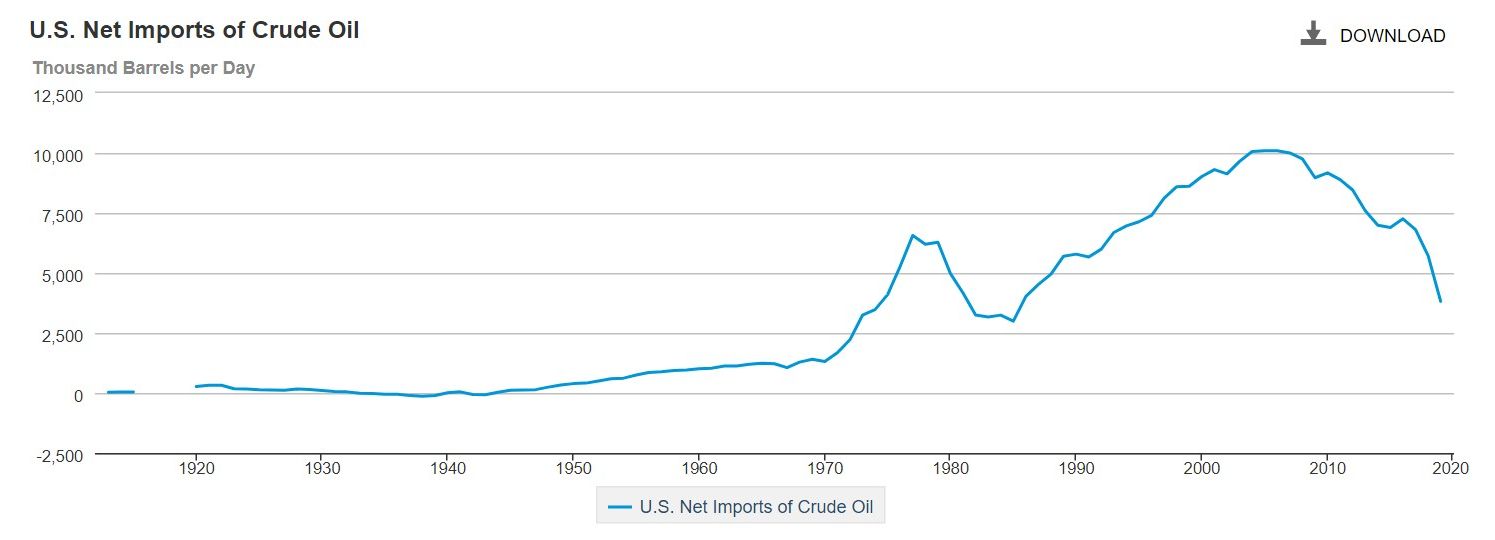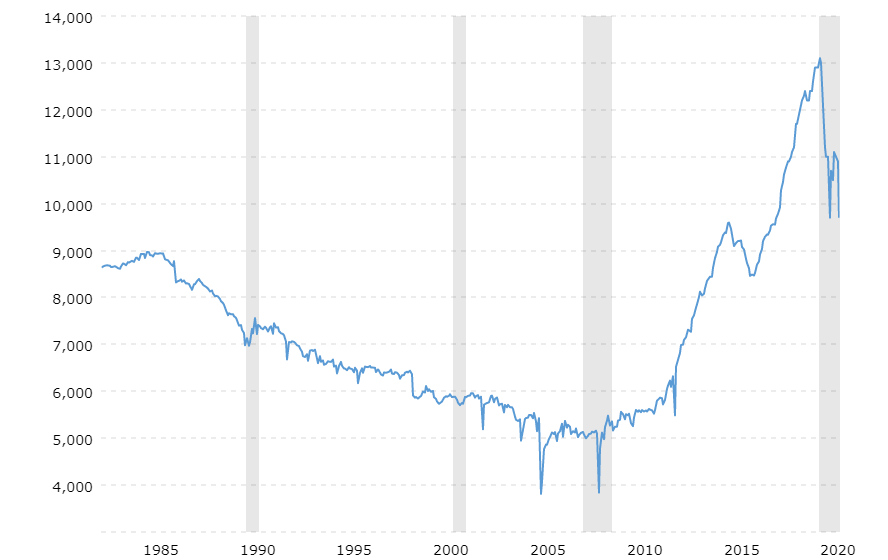The Return of American Non-Interventionism

The largest geopolitical change since WWII might be the US shale revolution. It frees Americans to revert to our natural proclivity for isolationism.
In only a few short years, the US has gone from importing 10 million b/d, to 3.8 million b/d, and in doing so becoming the world's largest oil producer. This might not appear to be earth shattering, but since the end of the Cold War only the dependence on foreign oil has required Americans to remain engaged in the world.

It might be hard for millennials, or even boomers, to comprehend, but most of US history has been strictly non-interventionist. George Washington hammered the need to avoid foreign alliances and wars in his farewell address upon leaving office, multiple Presidents reaffirmed this position throughout the 19th Century, and all the way until 1941, non-interventionism was a powerful part of the American ethos. It was only from 1941 until roughly 2001 that US strategic interests briefly aligned with an active interventionist policy.
A big sign of this return to isolationism came in 2013, from Wikipedia:
In December 2013, the Pew Research Center reported that their newest poll, "American's Place in the World 2013," had revealed that 52 percent of respondents in the national poll said that the United States "should mind its own business internationally and let other countries get along the best they can on their own." This was the most people to answer that question this way in the history of the question, one which pollsters began asking in 1964. Only about a third of respondents felt this way a decade ago.
Today, it is likely significantly higher. Populism in the US is different than most other places in the world, it is non-interventionist, a terrifying thought for elites who's wealth and power is based on a corrupt international order. Also in 2013:
A poll from late April 2013 found that 62% of Americans thought that the "United States has no responsibility to do something about the fighting in Syria between government forces and antigovernment groups," with only twenty-five percent disagreeing with that statement.
Of the major national economies in the world, the US is the largest and the least dependent on international trade. The Cold War was won by Americans subsidizing peace and trade. It resulted in the a domestic economy dependent on foreign energy, temporarily forcing Americans to stay engaged at the end of the Cold War. That's over. The US will be active in its immediate sphere of influence, but that's about all.

Decades as "world policeman" has taken its toll, as it should. Now, the US is free to be itself, withdrawal from its own creation, and abandon the Pax Americana.
US Oil Growth
Prior to the CCP virus, US oil imports were on track to be net zero by 2021 (dropping at a rate of 2 million b/d per year). Of course, events did not go shale producers' way. Global oil demand dropped 9% in 2020 and waves of bankruptcies have followed. Prices plummeted and production was cut. Foreign producers saw an opportunity to really stick it to shale. They were hoping to score a knockout blow that would keep the Americans offline for several years, and importantly keep the US engaged in the international order.
Despite Saudi best efforts, they failed. Supply fell faster than demand and the oil vigilantes were unable to keep the oil price low enough to knockout shale. US production dropped 25% (13 million to 9.8 million b/d) but shale operations are quicker to recover than traditional wells. American production capacity and the technology to exploit these reserves didn't disappear. It is not going away. Whether it is this year or next, it will come back online.

Current prices ($60/bbl) are already enough to stimulate a new wave of US production. Top US fields are profitable at $30-40/bbl and the rest are not far behind. It is estimated that at $60/bbl, 1 million b/d is able to come back online in the US.
Middle Eastern oil is no longer a concern for the Americans. Immediate neighbors can pick up the slack. Of the imports that are still needed, which are less than 20% of consumption, 54% comes from Canada and another 9% from Mexico. That leaves the worst case of only 1.4 million b/d from outside North America. As the oil industry slowly stabilizes over the next few years, North America as a whole will be energy independent.
All this should sound alarm bells for countries dependent on international trade. The Americans are going home. What happens when they stop subsidizing peace and trade? Peace and trade will likely diminish, and the world reverts to the mean. But more on that next time.




